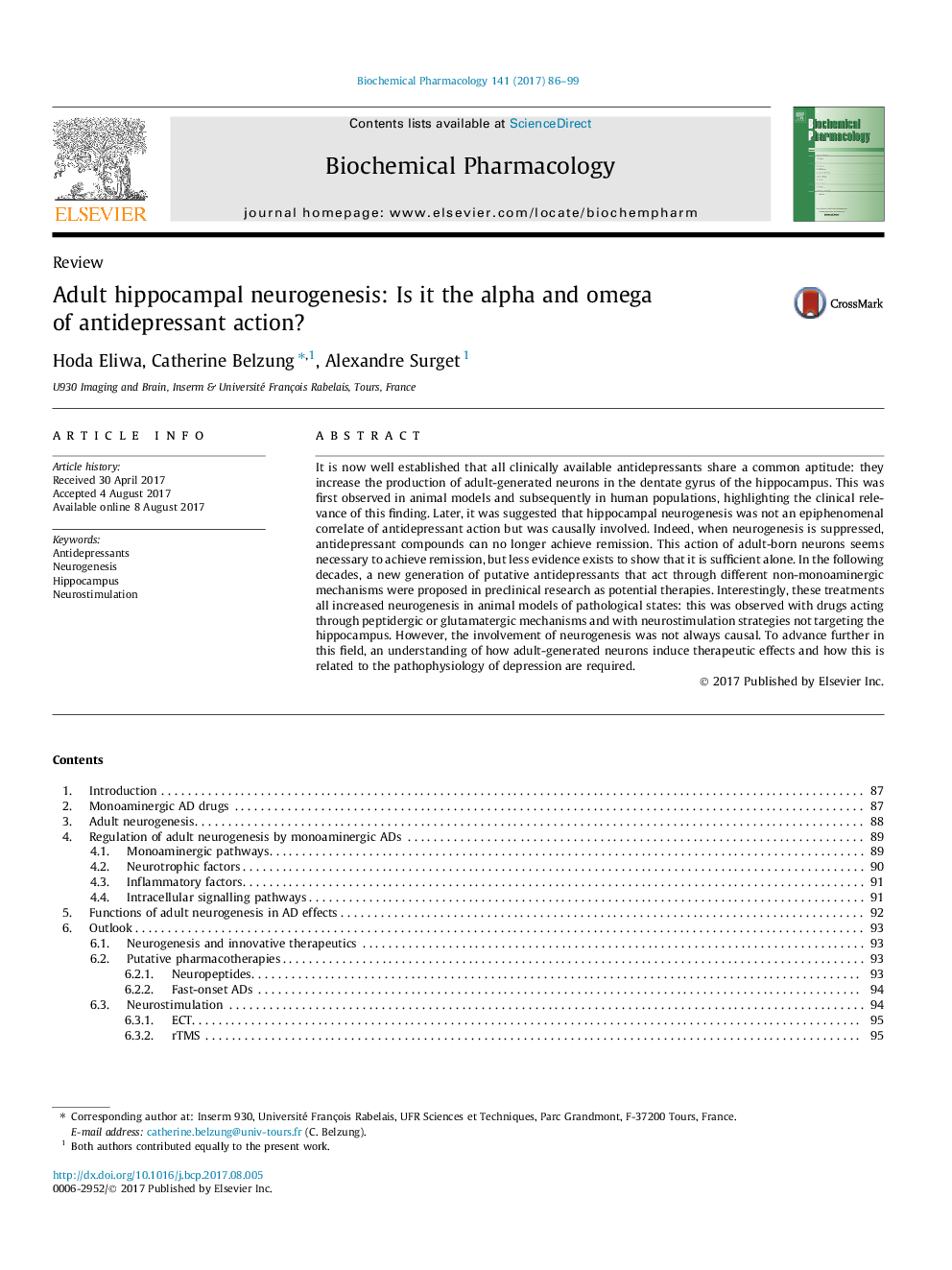| Article ID | Journal | Published Year | Pages | File Type |
|---|---|---|---|---|
| 5551955 | Biochemical Pharmacology | 2017 | 14 Pages |
It is now well established that all clinically available antidepressants share a common aptitude: they increase the production of adult-generated neurons in the dentate gyrus of the hippocampus. This was first observed in animal models and subsequently in human populations, highlighting the clinical relevance of this finding. Later, it was suggested that hippocampal neurogenesis was not an epiphenomenal correlate of antidepressant action but was causally involved. Indeed, when neurogenesis is suppressed, antidepressant compounds can no longer achieve remission. This action of adult-born neurons seems necessary to achieve remission, but less evidence exists to show that it is sufficient alone. In the following decades, a new generation of putative antidepressants that act through different non-monoaminergic mechanisms were proposed in preclinical research as potential therapies. Interestingly, these treatments all increased neurogenesis in animal models of pathological states: this was observed with drugs acting through peptidergic or glutamatergic mechanisms and with neurostimulation strategies not targeting the hippocampus. However, the involvement of neurogenesis was not always causal. To advance further in this field, an understanding of how adult-generated neurons induce therapeutic effects and how this is related to the pathophysiology of depression are required.
Graphical abstractRelationship between adult hippocampal neurogenesis (AHN) and antidepressants (ADs). Left panel: effects of ADs on neurogenesis in intact stressed animals. Right panel: effects of AD in stressed animals with hippocampal neurogenesis deletion. A: Stress has induced a dysfunction of the hypothalamus-pituitaryadrenal (HPA) axis regulation, that is no reversed by AD-related increase in AHN, inducing high glucocorticoid levels, B: the stress-related behavioural effects are maintained after AD treatment, C: Suppression of AD-related remission.Download high-res image (95KB)Download full-size image
